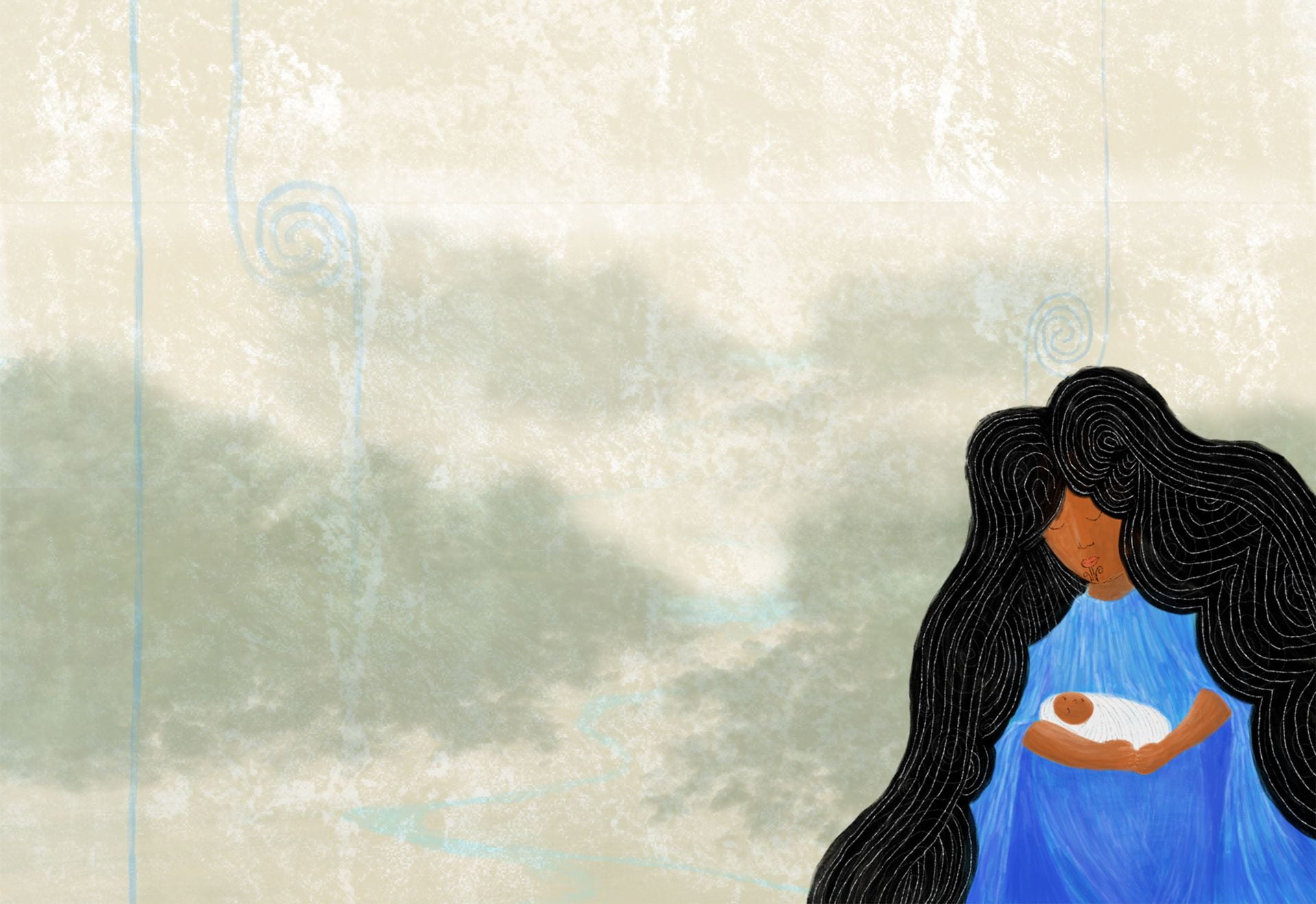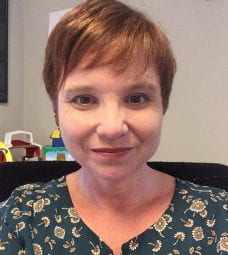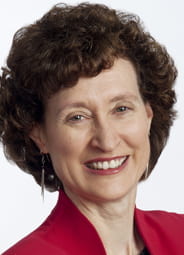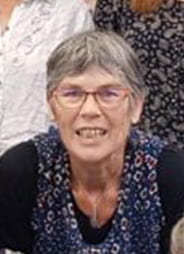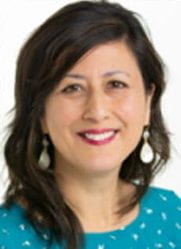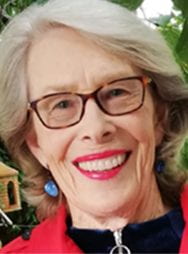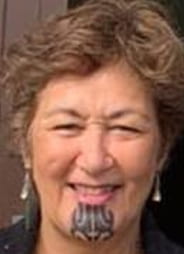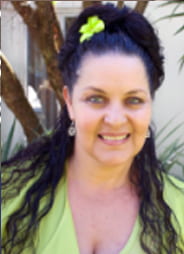Growing a Networked Research Community
Research Team
International Team Members
Professor Sheila Degotardi – Macquarie University, Australia
Sheila Degotardi is Professor of Early Childhood Education in the Macquarie School of Education, With over 20 years of experience teaching and researching in the early childhood education sector, Sheila has an internationally recognised research profile in the area of infant toddler curriculum and pedagogy. Her work focusses on the nature and implications of interpersonal relationships in infant-toddler early-childhood settings, and most recently, the significance of talk and language in very young children’s learning. Sheila’s work demonstrates how theoretical and practice-based perspectives can combine to create a rich understanding of how our youngest children grow and learn through their interactions with others. Her work reflects a strong commitment to the significance of children’s first years of life and the roles of those who educate and care for very young children.
Professor Shelley Stagg Peterson – Ontario Institute of Education, University of Toronto, Canada
Shelley Peterson is Professor in the Department of Curriculum, Teaching and Learning at the University of Toronto. She is the project director of the Northern Oral language and Writing through Play (NOW Play) project, involving collaborative action research with teachers, early childhood educators and families in remote Indigenous and non-Indigenous communities in northern Canada. Her research explores ways to support Indigenous children’s language, literacy and cultural knowledge in play-based contexts. Shelley’s research is based on a broad view of communication, recognizing that through talk and the nonverbal communication of everyday interactions, including play with peers, children learn language and the possible roles, relationships, perspectives and meanings available within their families, classrooms and communities. Supporting children’s language, literacy and overall learning requires the affirmation of their extant linguistic repertoires and cultural identities and a valuing of the richness of their families’ and communities’ language and literacy practices. Shelley has a strong record of funded research, publications, mentorship of doctoral students and building relationships with communities, families and educators.
Aotearoa New Zealand Team Members
Waipapa Taumata Rau | University of Auckland
Professor Janet S. Gaffney
Janet S. Gaffney is Professor of Educational Psychology-Literacy and Director of the Marie Clay Research Centre in the Faculty of Education and Social Work at the University of Auckland. Jan’s research on literacy learning and teaching, and teacher leadership has led to the development of collaborative and innovative teacher leaders and teachers who view children’s learning as the centripetal force that drives their thinking and actions. She has a dual background in educational psychology and special education with extensive teaching experience in communities with indigenous populations. She is a key collaborator on the Pacific Early Literacy Project (Ministry of Education) and is engaged in a historical narrative study of a moment in time (1962-1989) of The Peoples of Aotearoa: The Land, Place, and Space of Literacy Innovation. She is the Principal Investigator (with Dr Tauwehe Tamati and Dr Meg Jacobs) of a philanthropically funded study on connecting whānau and teachers of young children through storied conversations in a primary school and an affiliated kindergarten. Jan was previously a Professor/Senior Scientist at the Center for the Study of Reading and the Center for Advanced Study at the University of Illinois.
Professor Helen Hedges
Helen Hedges is Professor of Early Childhood Education in the Faculty of Education and Social Work. Helen’s research programme examines children’s and teachers’ interests, knowledge (both formal and intuitive) and learning in the context of early childhood education. Helen has contributed to theorising about children’s and teachers’ knowledge and interests through frameworks such as funds of knowledge (González, Moll, & Amanti, 2005) and funds of identity (Esteban-Guitart, 2016; Esteban-Guitart & Moll, 2014). She was Principal Investigator of a Teaching and Learning Research Initiative project on young children’s interests, inquiries and working theories. Later she was co-Principal Investigator of a Teaching and Learning Research Initiative project focused on young children who learn in more than one language that drew on her expertise in funds of knowledge and collaborative research with teachers. Helen was appointed in 2016 as one of seven members of a Ministry of Education writing team led by the Director of Early Learning, Nancy Bell, to revise and update the early childhood curriculum document, Te Whāriki.
Nola Harvey
Nola Harvey is an Honorary Academic in the School of Curriculum and Pedagogy, Faculty of Education and Social Work.. As senior lecturer she specialised in the area of languages and literacies in the early years. Her research includes the bilingual experiences of bi/multilingual children and teachers in early years educational settings, children’s rights, and refugee issues. Nola collaborated as a researcher in the TLRI project: Supporting learning in the early years for children who learn in more than one language (2013-2015) and as a team member in MoE’s Pasifika New Entrant Pilot Programme, Gālulue Fa‘atasi (2014- 2015). Nola has extensive experience in non-government organisations with executive positions in OMEP (International Organisation for Early Childhood Education) Aotearoa NZ, OMEP Auckland, and IPA (International Play Association) Aotearoa NZ as part of social justice work for children and their families in Aotearoa NZ. Nola holds a position on the Ministry of Education’s Centre for Refugee Education Advisory Committee.
Amanda White
Amanda White is a doctoral student in the School of Curriculum and Pedagogy, Faculty of Education and Social Work at the University of Auckland. Her research interests focus on communication, oral language and early literacy development in infants and toddlers as well as the role of sociocultural factors in shaping adult-child interactions. Amanda has extensive previous experience as a speech-language therapist and has worked with children, families, whānau and teachers for over 20 years in New Zealand and the United Kingdom. The aim of Amanda’s current PhD research is to explore the nature of story-time interactions experienced by one-year-old toddlers across home and early childhood settings in a multicultural community of Aotearoa-New Zealand. This research draws on sociocultural and ecological theoretical perspectives and employs a qualitative case-study research design.
Jill Stephenson
Jill Stephenson is a Research Associate for the Marie Clay Research Centre and has deep knowledge of early oral language learning in the context of Aotearoa New Zealand working in mainly with young 6- 7 year old Maori and Pasifika children in a one on one in literacy as a Reading Recovery tutor. Having had the experience of of studying as an undergraduate with both Marie Clay and Courtney Cazden. She worked with the Reading Recovery Team in the North of England for two years and at with the Reading Recovery Project at NYU during the 1990s. Jill was a team member in MoE’s Pasifika New Entrant Pilot Programme, Gālulue Fa‘atasi (2014- 2015).
Auckland University of Technology
Dr Meg Jacobs
Meg Jacobs is a Lecturer in the School of Education at Auckland University of Technology where she teaches ECE and primary courses in Initial Teacher Education. Meg’s research interests include how the literacies of children intersect with family knowledges, cultural and linguistic resources, and histories. Meg’s research interests have been shaped by her 15-year career as a US primary school teacher and as a lecturer in initial teacher education in the US from 2013-2017, and research projects and collaborations in the US and Aotearoa New Zealand. Meg’s 2013 University of Iowa dissertation study on family literacy in a homeless shelter continues to influence her interest in literacies on the margins of dominant ways of knowing, the lived experiences and perspectives of families in transition, and the responsibility of educational researchers to contest deficit frameworks in their work with families. Meg was appointed as a Research Fellow in the Marie Clay Research Centre, Faculty of Education and Social Work, at the University of Auckland from August 2017 – June 2020. Meg is currently contributing to the following research projects: Pasifika Early Literacy Project (PELP), funded by the Ministry of Education, that explores how dual-language texts serve as a catalyst to make space for the linguistic and cultural resources of Pasifika children and their families in ECE settings and schools. Meg also serves as a Co-PI on the project, Understand Me, a TLRI funded study that brings children, families, and teachers together in storied conversations to privilege child and family contributions as valued knowledge/s in ECE settings and schools
Te Herenga Waka | Victoria University of Wellington
Associate Professor Jenny Ritchie
Dr Jenny Ritchie is an Associate Professor in Te Puna Akopai, the School of Education, Te Herenga Waka Victoria University of Wellington. Her research and teaching have focussed on: understanding how to apply a commitment to Te Tiriti o Waitangi and social, cultural and ecological justice within early childhood and teacher education; pedagogies that affirm and support children’s cultural, spiritual and emotional wellbeing and citizenship enactment; and exploring how applying Māori conceptualisations can enhance pedagogies that protect and care for our planet. From 2004-2009 she led three consecutive, two-year studies funded by the New Zealand Teaching and Learning Research Initiative. She was an International Research Fellow with the Velma E. Schmidt International Critical Childhood Policy Studies Collaborative (University of North Texas) led by Professor Gaile Cannella from 2010-2015. She recently co-directed a collaborative research project focussed on documenting young children’s active citizenship, funded by the Spencer Foundation Chicago, which resulted in the publication Young children’s community building in action: Embodied, emplaced and relational citizenship (Phillips et al., 2019).
Associate Professor Mere Skerret
Mere Skerrett (Ngāi Tahu, Ngāti Rakiāmoa, Ngāti Ruahikihiki, Ngāti Māhuta, Ngāti Unu, Ngāti Maniapoto, Ngāti Pikiao, Ngāti Te Rangiunuora, Ngāti Pūkeko), Head of School, Education at Te Herenga Waka, Victoria University of Wellington. Mere is on various advisory and editorial boards, taking the lead in a MOE project Kahu Pūtoi, which is building a teacher to teacher network guided by the MOE and Chair of the Reconceptualizing Early Childhood Education Committee Inaugural Indigenous Caucus. Her work is in line with our University values of incorporating mātauranga Māori into teaching, engaging with Te Tiriti o Waitangi and te reo Māori in research, partnering with iwi Māori and actively contributing to our Tiriti obligations including increasing awareness around bicultural awareness nationally and internationally. Current projects include Te Hurihanganui (which aims to support communities to work together to address racism and inequity so that they can accelerate the achievement and wellbeing of ākonga Māori and their whānau. What works in communities will then be built back into the education system so that we see transformative shift for all ākonga Māori and their whānau throughout the education system) and initial teacher education students’ competency in te reo Māori investigating: How does teacher education assist with educating future teachers to develop and maintain a commitment to learning te reo Māori with a view to increasing their communicative competence, becoming confident speakers of reo Māori in education contexts?
University of Waikato
Dr Lesley Rameka
Lesley Rameka is Senior Lecturer based at the Wilf Malcolm Institute of Educational Research and National President of Te Rito Maioha Early Childhood New Zealand. She teaches in the early childhood and Māori education programmes. Lesley has worked in early childhood education for over 30 years, beginning her journey in Te Kohanga Reo. Lesley’s research interests include; Māori early childhood education, Kaupapa Māori Assessment in early childhood, Curriculum development in Māori early childhood services and Māori pedagogies. Lesley’s current interests are centred on reclaiming Māori and Pacific perspectives of infants and toddlers’ care and education and reframing them for contemporary early childhood contexts. Lesley is also involved in a Ministry of Education funded research on Māori immersion educational transitions.
Va’atele Education Consulting
Dr Rae Si’ilata
I come from Ngāti Raukawa, Tūhourangi, Fiji and, through my whānau, connect with Samoa. I work at Te Whare Wānanga o Awanuiārangi in the School of Indigenous Graduate Studies (SIGs), supporting Māori and Pacific tauira/students in their indigenous doctoral journeys. I worked most recently as Lecturer/Senior Lecturer for 15 years at The University of Auckland supporting practising teachers in postgraduate bilingual/biliteracy/TESSOL study. I am now an Honorary Academic at Te Puna Wānanga in the Faculty of Education and Social Work. I have been a teacher, school leader, facilitator, lecturer, and consultant in Aotearoa and the Pacific for many years, and am currently Director of Va‘atele Education Consulting. VEC holds a number of Ministry of Education contracts, including the Pasifika Early Literacy Project (PELP), the Pasifika Teacher Aide Project (PTAP) and the Research Project for Tautai o Le Moana (ToLM). All of these projects are focused on supporting centre and school tautai/leaders, kaiako/teachers, and kaiawhina/teacher aides to develop systems and ways of working that privilege and utilise linguistically and culturally sustaining/revitalising pedagogies within their learning spaces. It is my privilege to work with VEC’s project coordinator, PLD/fono facilitators and researchers as we support centres and schools to make meaningful connections with the linguistic and cultural resources of Māori, Pasifika and all tamariki/rangatahi and their whānau. Our vision is for tamariki/rangatahi to become bilingual and biliterate, and ultimately to experience success that includes, rather than excludes, their linguistic and cultural identities.
COMET: Talking Matters
Emma Quigan
Emma trained and practiced as a Speech & Language Therapist before taking up a position focusing on professional development and sector capability for the Ministry of Education. She joined Talking Matters at its inception and leads community-based initiatives that design and support coaching models to wrap rich language environments around babies and children at home and in ECEs. Emma is studying for her Masters in Education with Prof. Jan Gaffney and Dr Rae Si’ilata.
